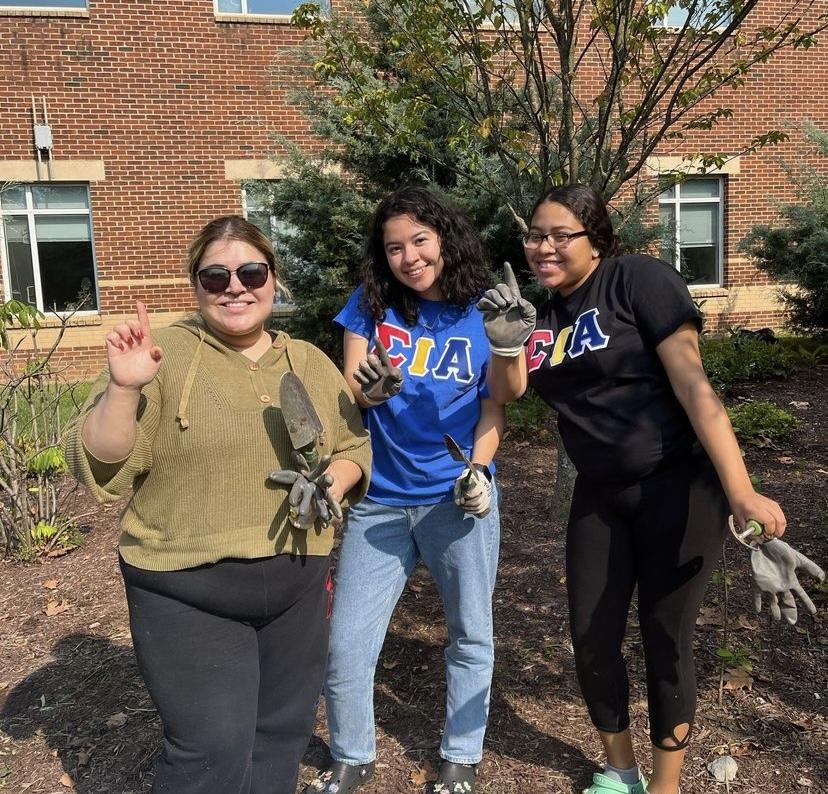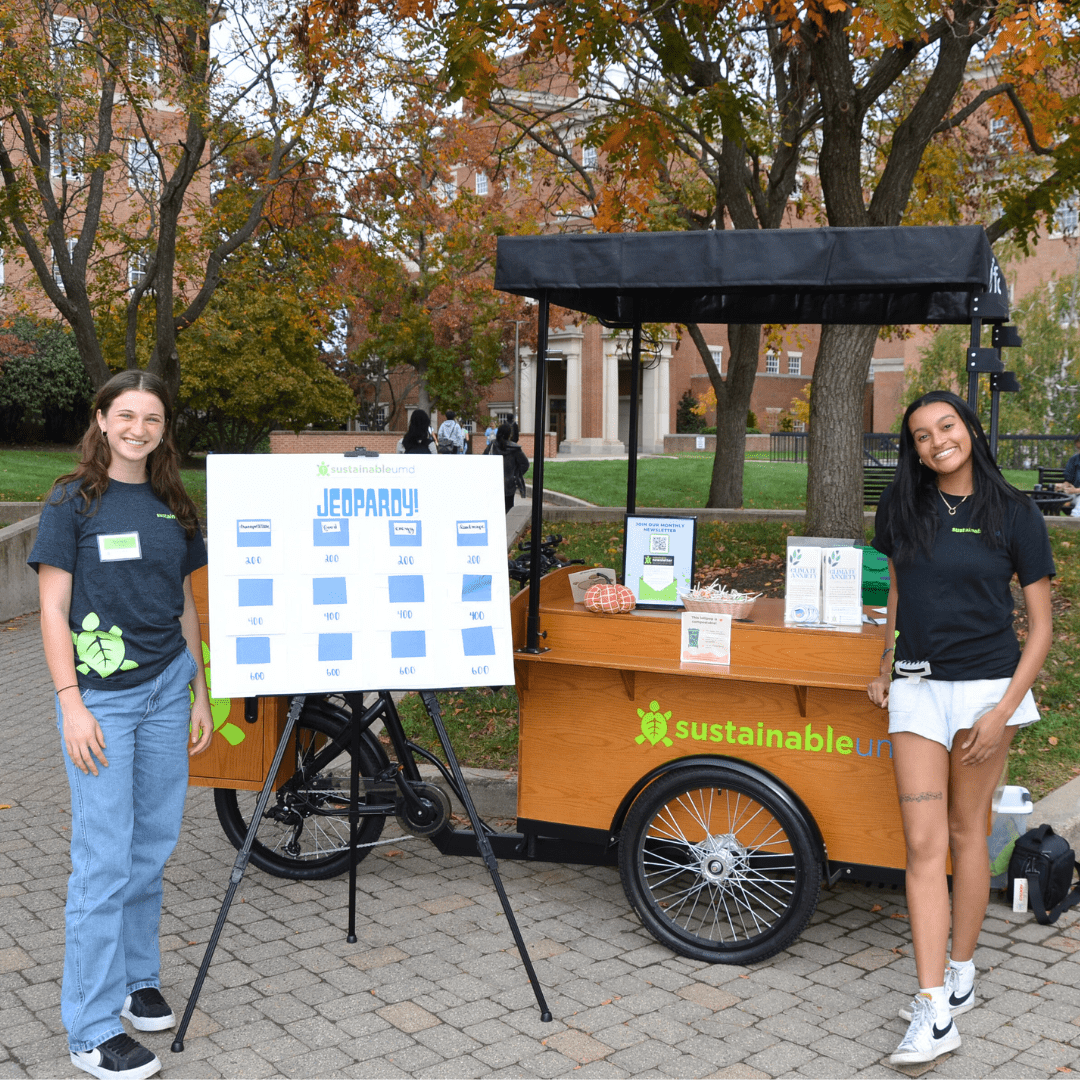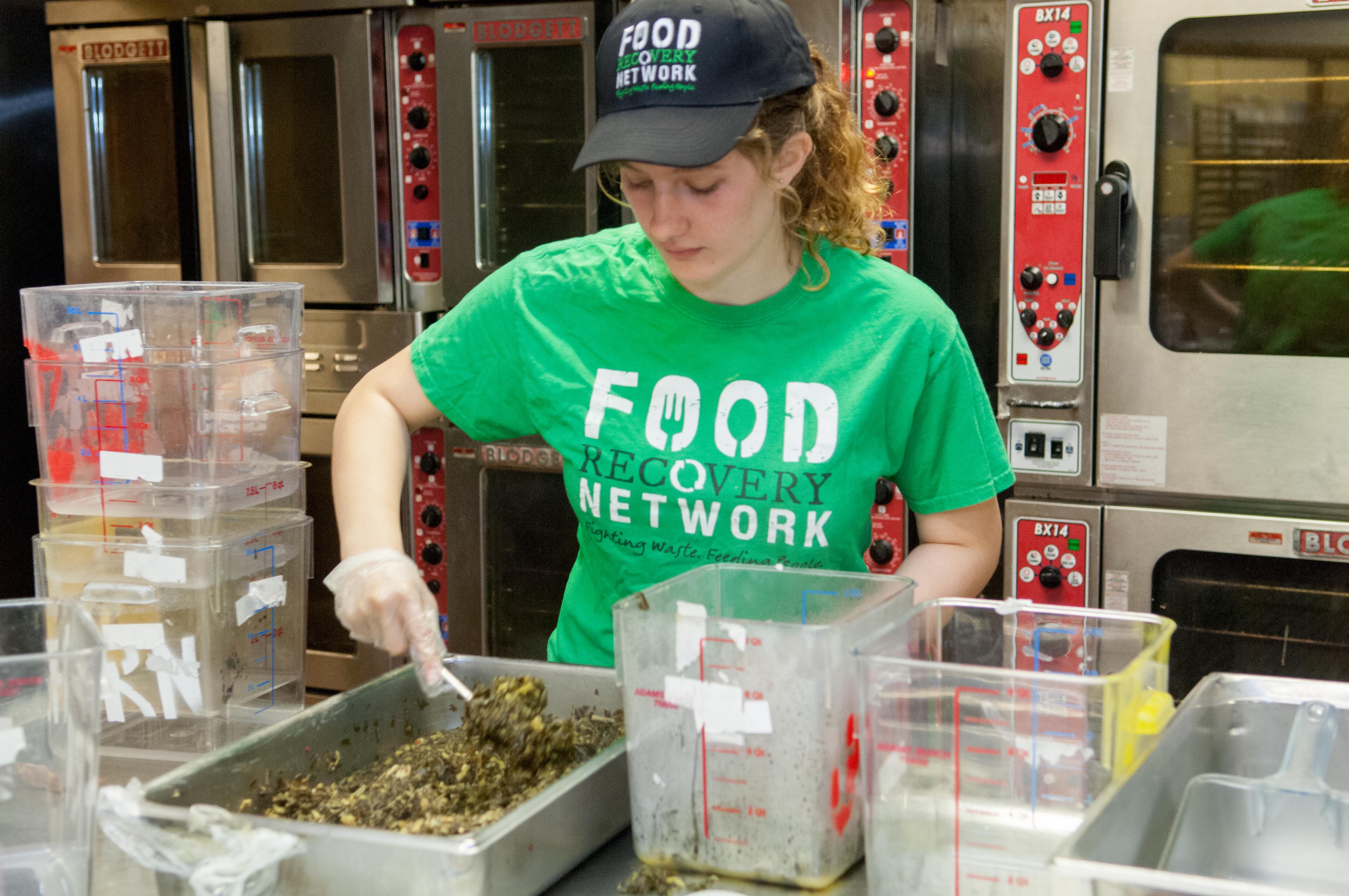All students can be Green Terps by getting involved with sustainability through academics, research, student groups, professional opportunities, and by taking individual action. Whether you are already involved or just getting connected to sustainability on campus, follow the Green Terp Instagram (@greenterp) and subscribe to the student newsletter for tips on how to take action towards a more sustainable future.
To dive deeper into what it means to be a Green Terp, explore the categories below.
Campus Sustainability
As a Green Terp, you have access to a multitude of campus resources that can help you foster new sustainability habits. Explore just a few of these resources below.
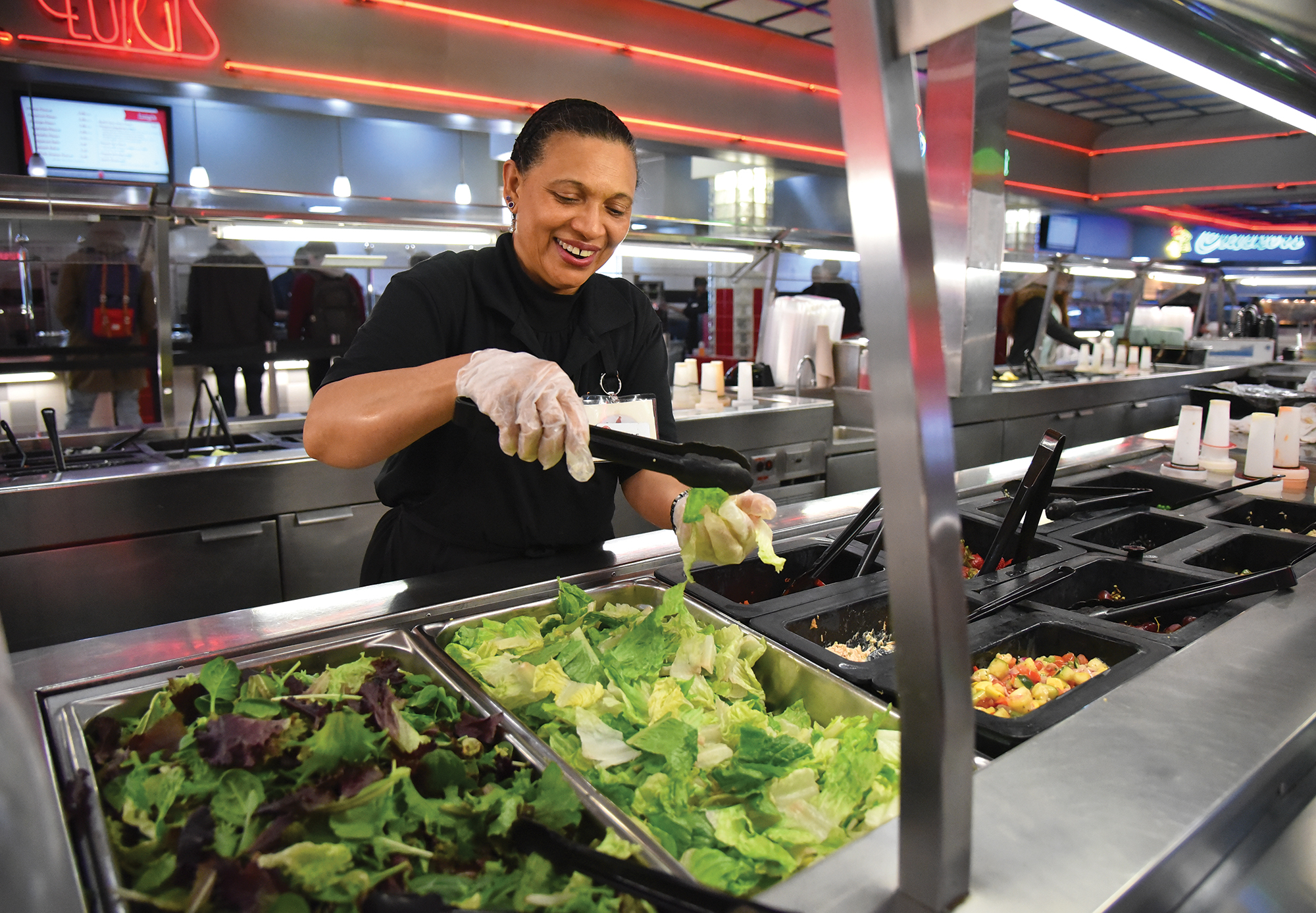 Choose to dine on campus, compost food scraps, join the Food Recovery Network, and shop local at the UMD Farmers Market. Learning more about Dining Services' offerings at the university.
Choose to dine on campus, compost food scraps, join the Food Recovery Network, and shop local at the UMD Farmers Market. Learning more about Dining Services' offerings at the university.
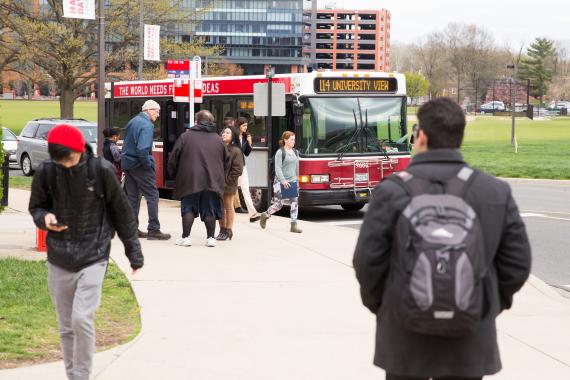 Use free ShuttleUM services and BikeUMD micromobility options to get where you need to go. Campus provides free bike maintenance, covered parking, and more. Explore the Department of Transportation Services for sustainable transportation options.
Use free ShuttleUM services and BikeUMD micromobility options to get where you need to go. Campus provides free bike maintenance, covered parking, and more. Explore the Department of Transportation Services for sustainable transportation options.
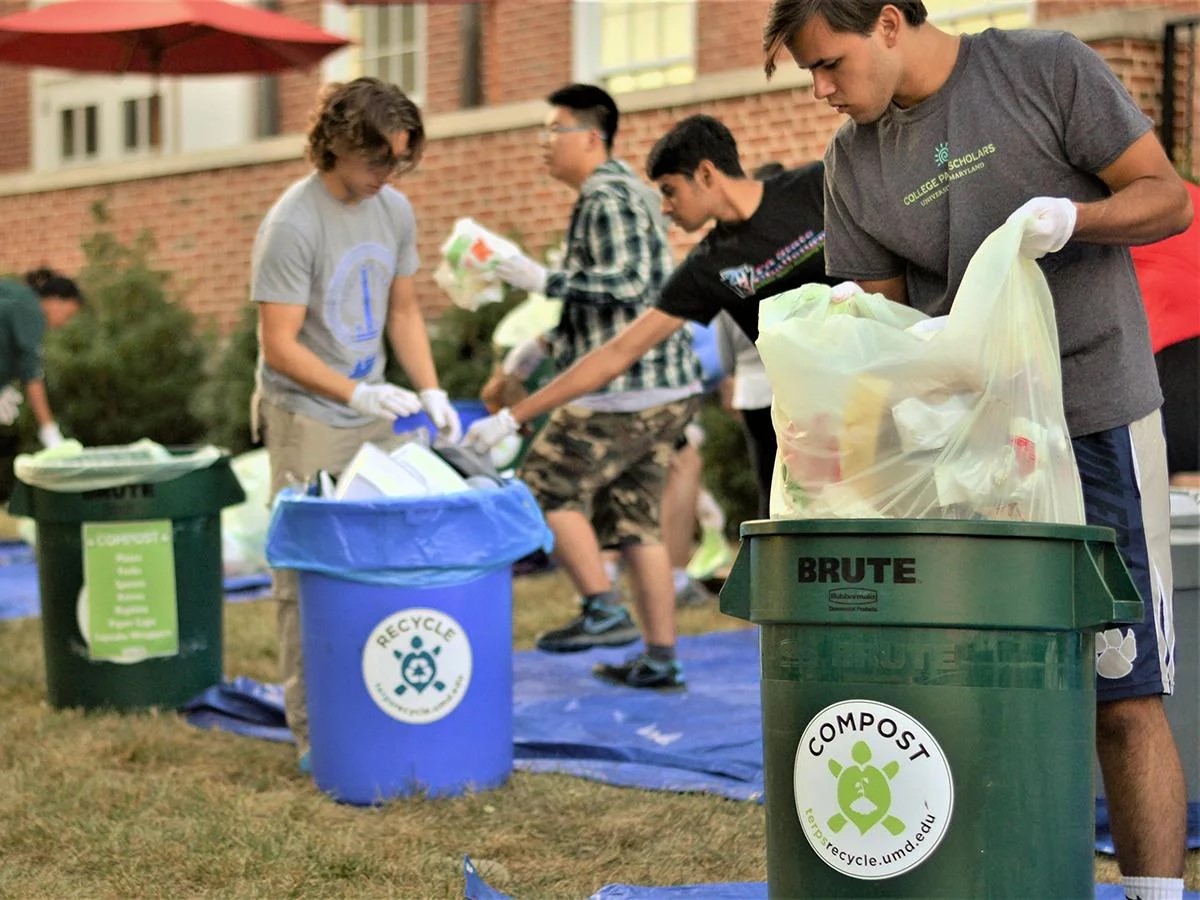 Sort your waste into recycling, compost, or landfill bins. Donate food to the Campus Pantry and essential living goods to the Terp to Terp Campus ReUse Store. Learn more through the Department of Recycling and Waste Management.
Sort your waste into recycling, compost, or landfill bins. Donate food to the Campus Pantry and essential living goods to the Terp to Terp Campus ReUse Store. Learn more through the Department of Recycling and Waste Management.
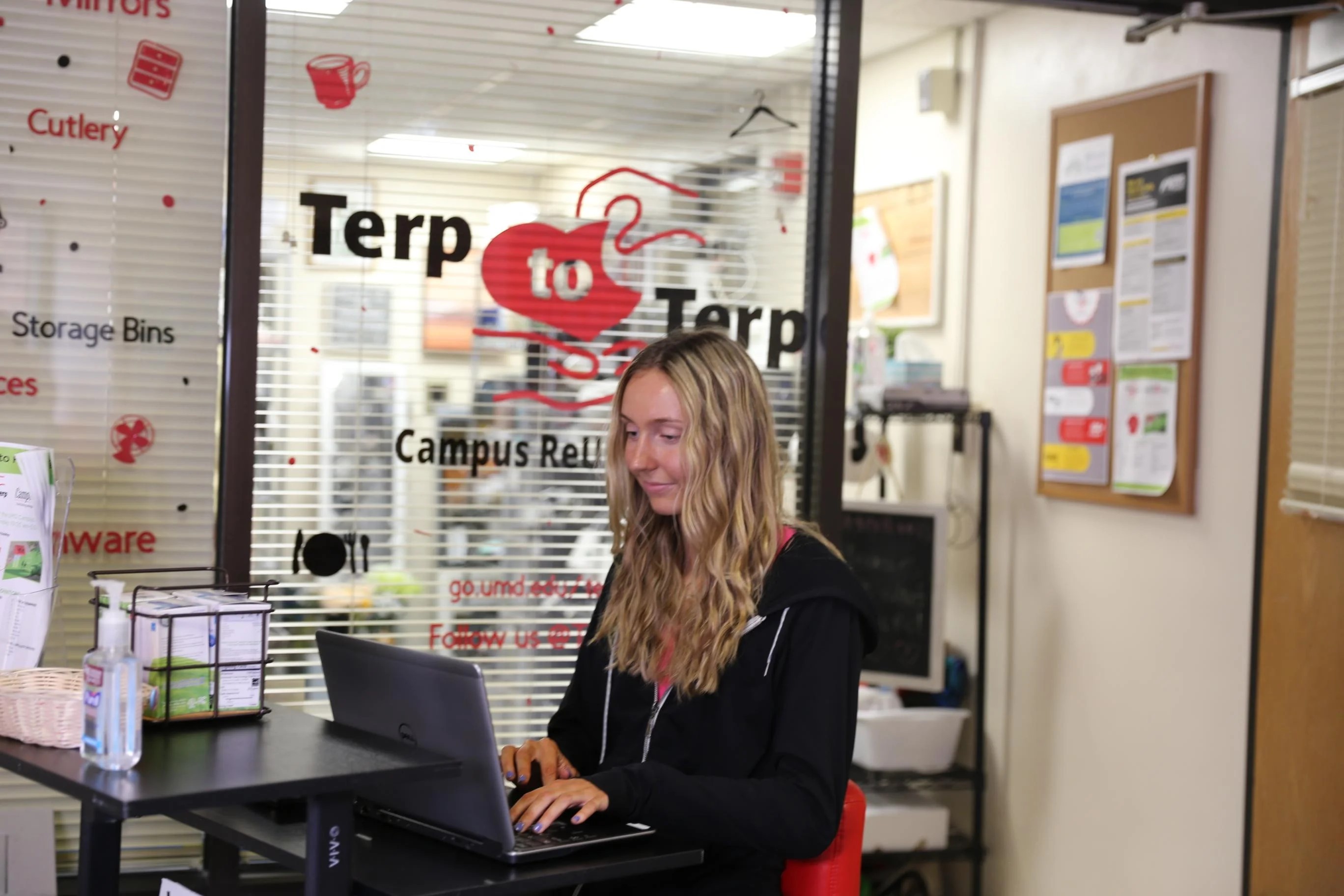 Reduce waste and shop at the free Terp to Terp Campus ReUse Store. Use campus greenspaces like the Garden of Reflection and Remembrance. Learn more through Terp to Terp and the Arboretum.
Reduce waste and shop at the free Terp to Terp Campus ReUse Store. Use campus greenspaces like the Garden of Reflection and Remembrance. Learn more through Terp to Terp and the Arboretum.
Opportunities for Involvement
There are many opportunities to get involved in campus and off-campus sustainability efforts. Explore a few of the involvement options below.
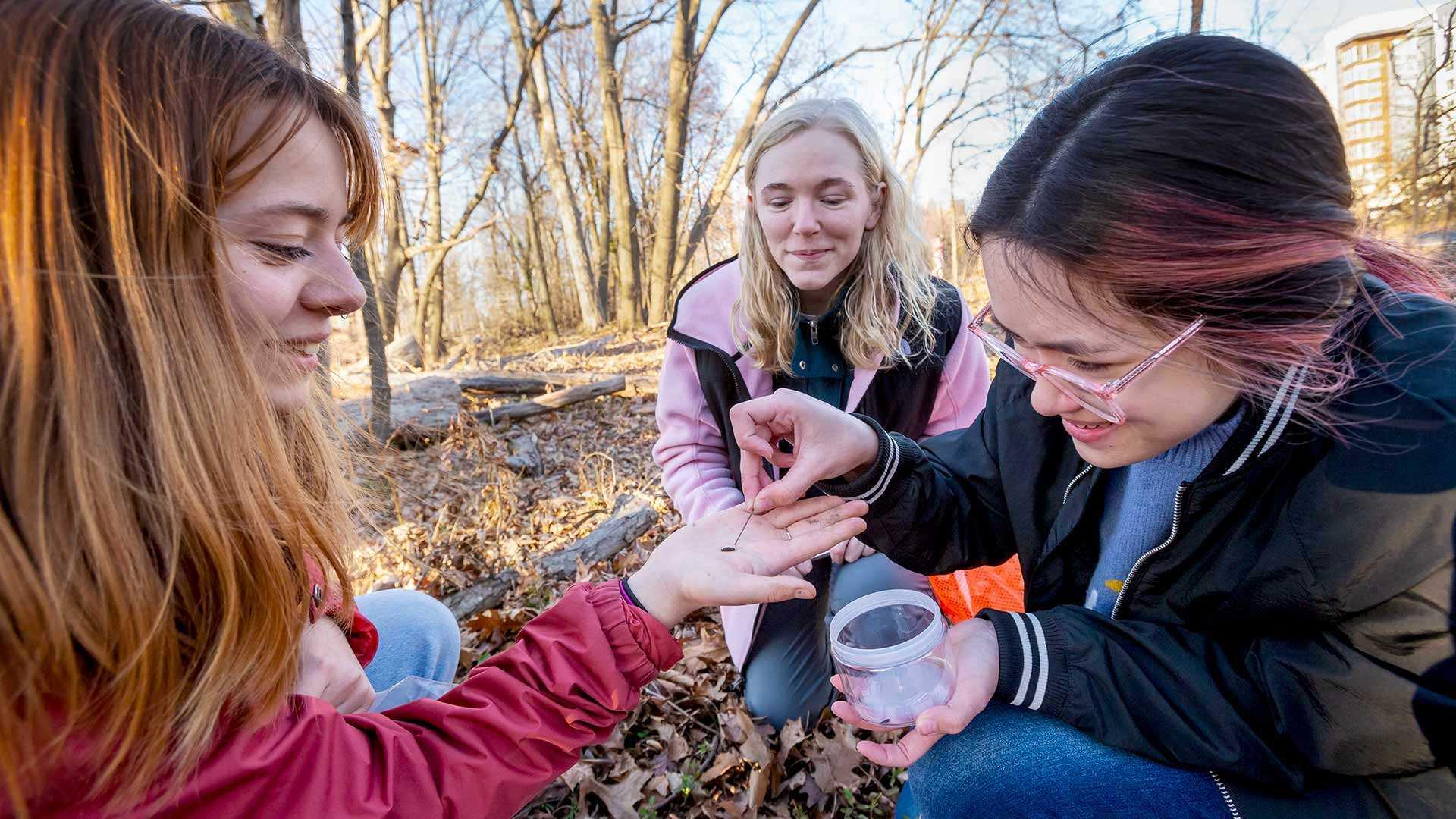
Student Organizations
Dozens of campus organizations emphasize sustainability!
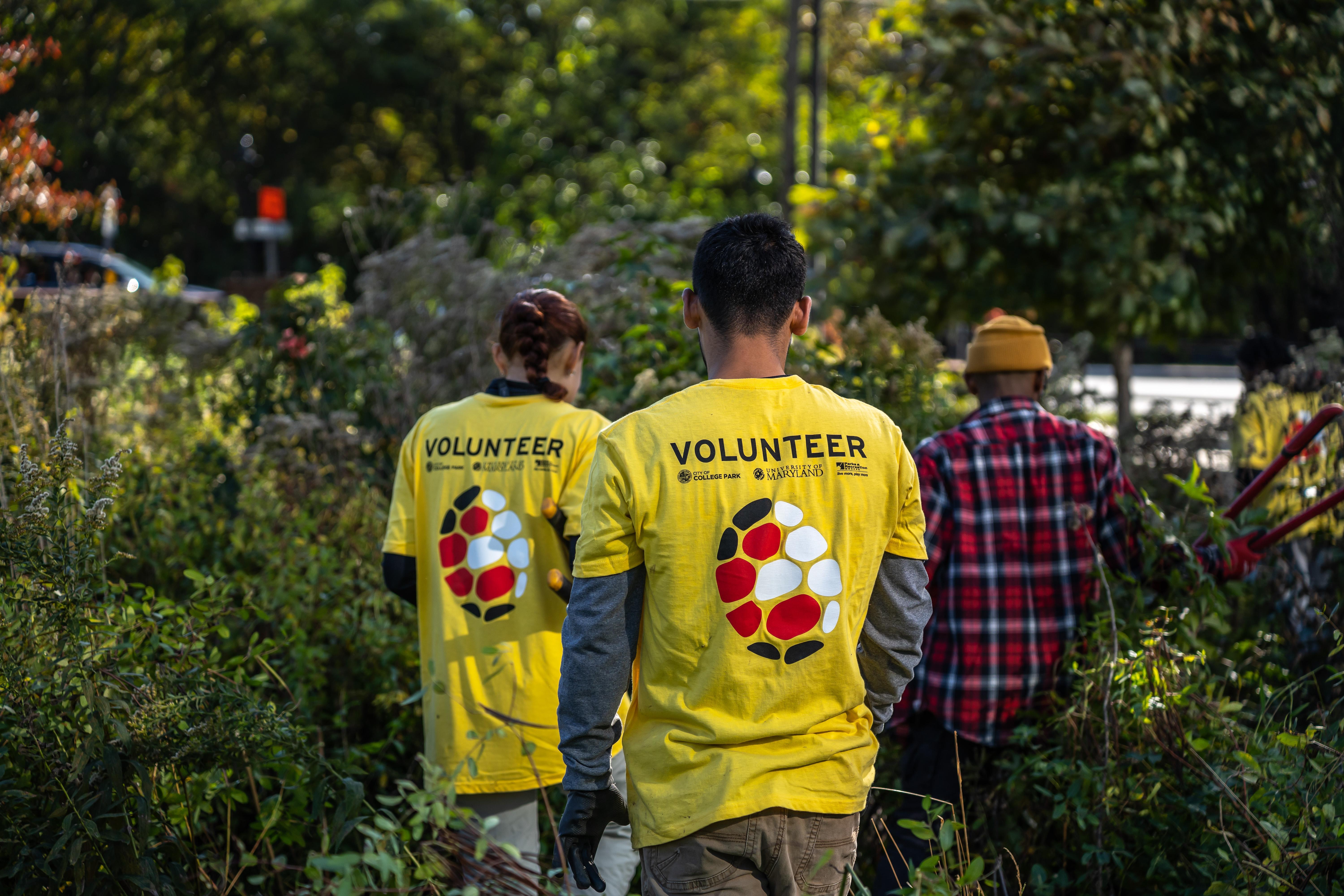
Volunteering
Find projects on and off-campus to make a difference in your community.
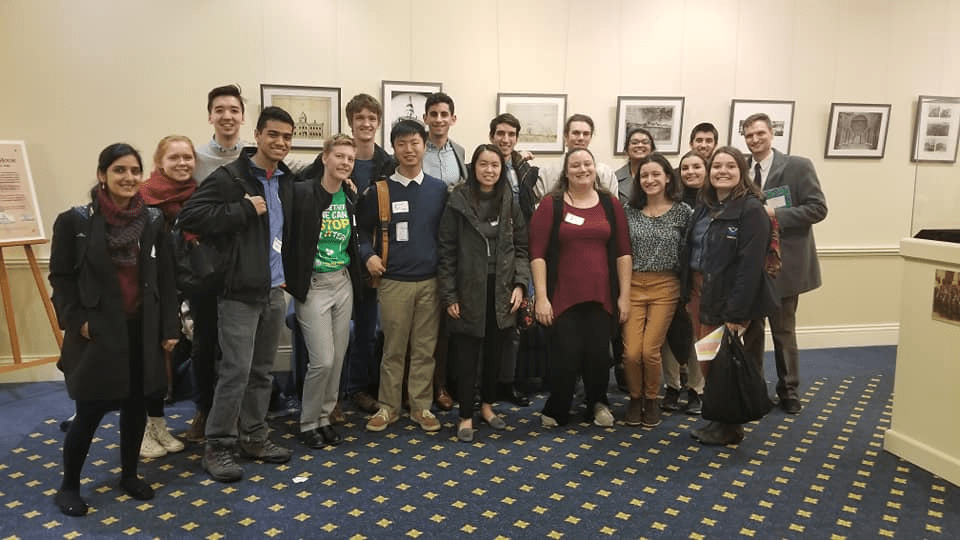
Student Governance
Sustainability Academics
From degree programs to research projects to living-learning programs, students and faculty learn, enhance, and find support for addressing sustainability issues.
Living & Learning Communities
The University of Maryland's Living and Learning Programs are unique programs that integrate academics into student living space. Students have the opportunity to live in the same residence hall as fellow members of their Living and Learning Program, forging friendships while simultaneously exploring academic interests. Living and Learning Programs cover areas ranging from engineering to creative writing, and many programs involve a central research activity or project.
Sustainability Minor
The Sustainability Studies Minor provides University of Maryland students the opportunity to explore pressing environmental topics such as global food systems, renewable energy, emerging environmental threats, ecological design thinking, and much more. The minor can be paired with any major and since its creation in 2012, has remained one of the university’s most popular and globally relevant minors.
Research
The University of Maryland prides itself on paving the way for innovative and bold research ideas. Many research centers housed at the University of Maryland are involved with solving environmental problems, in the local community and at global scales.
Essential Needs
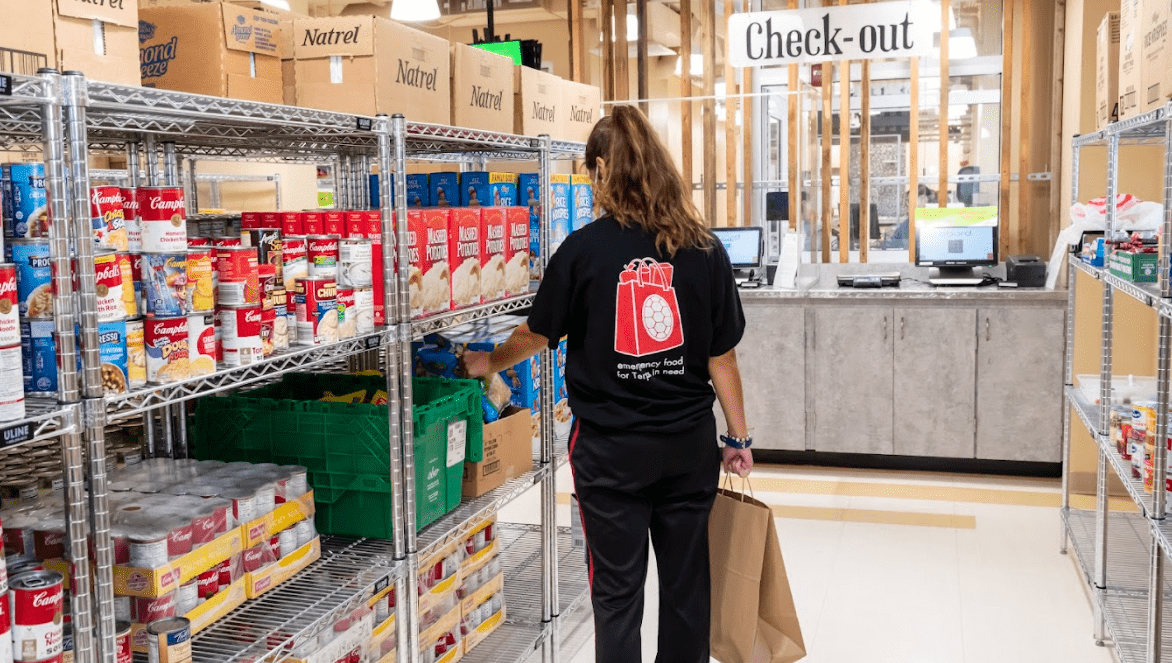
Participating in sustainability also means meeting your essential needs. There are many resources on campus designed to support your transition to college. From mental health services to emergency funds to food security resources, the Dean of Students team works to connect students with accessible resources.
Green Terps in Action
Stay up-to-date on Green Terp activities by following the Instagram account. Get a sneak peek of what is happening on campus below.
Green Terp Bucket List Challenge
Launched October 1st 2025!
Take part in the Office of Sustainability’s new Green Terp Bucket List Challenge! Participation in the bucket list challenge allows students to explore locations on campus that foster the culture of sustainability at UMD. Now, you can earn unique pins and a sustainability graduation cord for actions you may already be doing. This challenge might even help you find your next career interest!
Inspire Green Terps
You can encourage students on campus to be Green Terps. Use the brochure below as a handout at campus events and put the sticker icon on flyers of events that support sustainable behavior.

